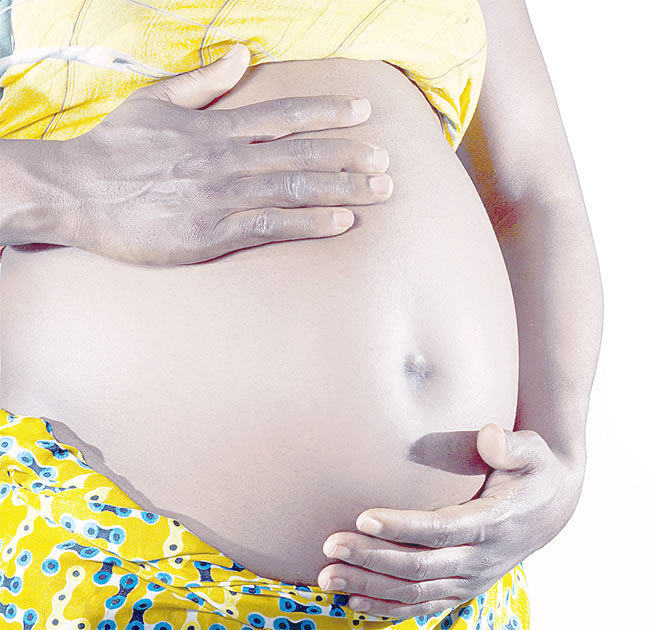Too many new mothers have or even die from health problems that would have been prevented if they were aware of things that they shouldn’t do after giving birth.
Mrs Kemi Adenuga (not her real name) did not prepare for the protruding tummy after childbirth. She did not like her darkened skin and the excess weight when she saw herself in the mirror. Her husband had to draw up a plan to support her in building her self-confidence and working on her big belly.
Days after Mrs Aminat Hammed was discharged from the hospital, she was arrested by the police for killing her 2-week-old baby. The woman’s relative didn’t understand what led to it. The case was pathetic.
They represent a small number of women not prepared for possible life-threatening problems related to childbirth that can happen days or weeks after delivery. The delivery may have been complicated or easy. It may have had to be by a caesarean birth (C-section) or vaginal delivery.
Fully recovering from pregnancy and childbirth might take months regardless of what the delivery looked like because of the many physical and mental changes the body may have gone through.
That is not to say that recovery won’t have its challenges. There may be abdominal pain that gets worse or is new, feeling sad and teary after giving birth, constipation, haemorrhoids (painful swelling of a vein in the rectum), and soreness in the area between the vagina and anus.
There could also be sore nipples and breasts in the first few days of breastfeeding, a persistent severe headache, fainting or dizziness, vaginal bleeding and discharge with a strong odour, heart palpitations, chest pain or difficulty breathing, and leaking pus or bloody discharge from the C-section incision.
Some symptoms in postpartum are expected and nothing to worry about, while others can be signs that something else is happening.
According to Professor Dapo Olayemi, a consultant obstetrician and gynaecologist at the University College Hospital (UCH), Ibadan, recovery from childbirth is a natural process that requires only eating good food, resting well, breastfeeding the baby, and good social support.
“In an uncomplicated pregnancy, generally a woman would have recovered from childbirth in 6 weeks as long as the woman is living a normal healthy lifestyle,” he said.
However, Professor Olayemi said symptoms like a persistent severe headache, fainting or dizziness, vaginal bleeding, discharge with a strong odour, heart palpitations, and leaking pus or bloody discharge from the C-section incision after childbirth are signs that something is wrong and should be reported promptly to the hospital.
Persistent feelings of sadness or hopelessness and difficulty sleeping, even when the baby is asleep, are some signs indicative of postpartum mood and anxiety disorders, one of the most under-identified, underdiagnosed, and undertreated complications after childbirth.
While nearly 80% of new parents experience mood swings or mild sadness during the first two weeks after birth, conditions such as postpartum depression (PPD) last longer and have a more profound impact.
Postpartum depression is characterized by feelings of sadness, exhaustion, hopelessness, or even anger. It is not a sign of weakness. or a character flaw, but a medical condition influenced by hormonal changes, physical exhaustion, and stress. Genetics and personal mental health history can also play a significant role.
Some parents struggle to bond with their babies, feel unmotivated, or worry excessively about their parenting abilities.
Professor Olayemi added, “If there is any medical condition or complication which she carries over in pregnancy into childbirth, that needs to be continuously monitored and properly taken care of.”
He also advised, “We also recommend that you don’t have too many babies; put some gaps between two deliveries. It will reduce the effect on the woman. A woman who does not have too many deliveries and who has spaced her pregnancies properly should not have problems after pregnancy.”
A family physician, Dr Fisayo Oluwatosin, also emphasized follow-up care after childbirth at 6 weeks because there are things that can happen to a woman who has just delivered a child.
“For the woman who has just been delivered of a child and is no more under the scrutiny of antenatal care, there is a tendency to miss out on some health conditions like high blood pressure when she does not go for postnatal care,” he added.
Even at primary health facilities across Oyo State, it is expected that during follow-up visits after the delivery of the baby, the mother is assessed for such things as excessive weight gain, swollen feet (oedema), headache, fainting attacks, and sleeping well to understand her state of health, according to Mrs Folasade Oladele, a public health nurse.
According to Mrs Oladele, “From these assessments and vital signs, the health care practitioners can identify any abnormalities that need to be corrected, like high blood pressure or blood sugar, or even conditions that they need to refer for specialist care.”
This medical checkup a woman gets after having a baby is important because new mothers are at risk of serious and sometimes life-threatening health complications in the days and weeks after giving birth. Too many new mothers have or even die from health problems that may be prevented by getting postpartum care.
READ ALSO: 70 percent of women risk baby blues after childbirth
